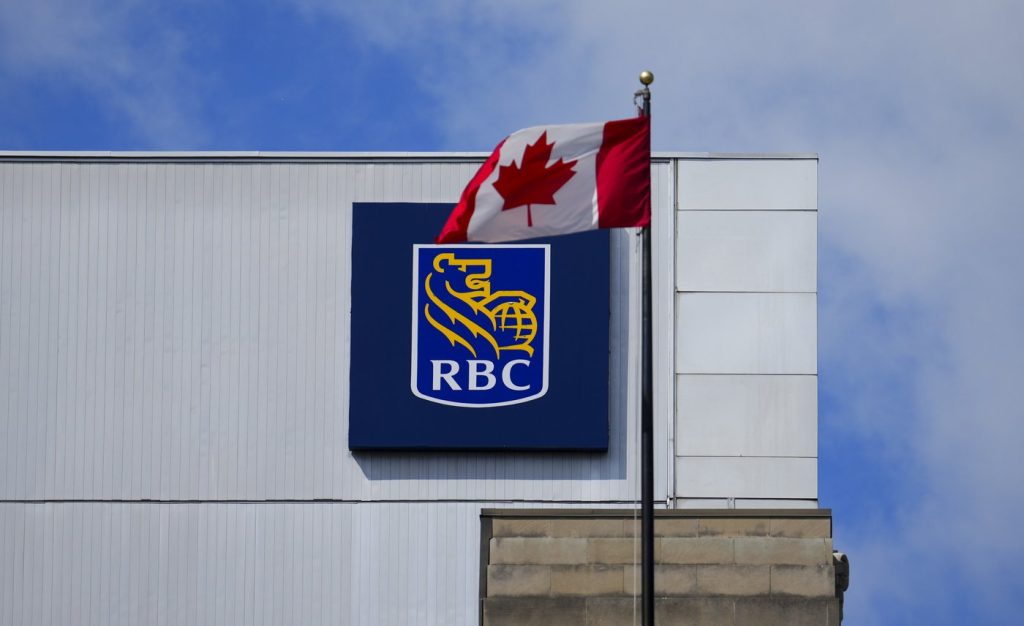RBC reports Q4 profit rose to $4.2B despite softening Canadian economy

Posted Dec 4, 2024 06:50:58 AM.
Last Updated Dec 4, 2024 12:02:24 PM.
TORONTO — RBC shrugged off the effects of a softening Canadian economy to report a profit of $4.22 billion in the fourth quarter and $16.2 billion for the year.
Profits at Canada’s largest company were up seven per cent in the quarter from last year, boosted in part by the acquisition of HSBC Canada, while adjusted profits for the quarter were up 18 per cent, it said Wednesday.
The boost to its bottom line came despite tepid economic growth and rising unemployment in Canada that have pressured borrowers and loan growth, but those were offset at the bank by strong earnings growth in its wealth and asset management divisions.
But the economic headwinds, which also included lower immigration and the threat of protectionism, had the bank warning that the situation could get worse before it gets better.
“On the credit side, we are cautious but optimistic,” said chief executive Dave McKay.
“We’re just a little uncertain as to how we’re going to land this thing, whether it’s in the first half or second half of the year, or early into ’26.”
The uncertainty has led the company to be a little more prudent on capital, he said.
While the bank on Wednesday announced a four per cent dividend increase, it pulled back on share buybacks last quarter, said McKay.
“We have been cautious in buying back stock this quarter given the higher degree of volatility around election outcomes and monetary policy going forward.”
The quarter saw RBC boost its provisions for bad loans by 17 per cent from a year ago to $840 million, mostly from Canadian personal and commercial banking.
The bank benefited from some improvement on impaired loans in its capital division, but the trend isn’t expected to last, said chief risk officer Graeme Hepworth.
“While this trend is encouraging, we don’t expect losses to remain this low,” he said.
Total credit losses could peak in the second half of next year as unemployment rises and the economy continues to soften, said Hepworth.
“Moving forward, credit outcomes will continue to be dependent on the magnitude of change in unemployment rates, the direction of magnitude of changes in interest rates, and commercial and residential real estate prices.”
Provisions did little to dampen profits though, with earnings per diluted share of $2.91 for the quarter ended Oct. 31, up from a profit of $2.76 per diluted share in the same quarter last year, as revenue totalled $15.07 billion, up from $12.69 billion a year ago.
On an adjusted basis, RBC says it earned $3.07 per diluted share in its latest quarter, up from an adjusted profit of $2.65 per diluted share a year earlier.
The average analyst estimate had been for an adjusted profit of $3.01 per share, according to data provided by LSEG Data & Analytics.
“Overall it is hard to argue with (RBC’s) year-end performance,” said Scotiabank analyst Meny Grauman in a note.
The quarter was solid on margins, operating leverage and capital levels, with the main question being if the results justify RBC’s premium valuation, he said.
RBC said its personal banking business earned $1.58 billion, up from $1.37 billion a year earlier. Its commercial banking operations earned $774 million, up from $668 million. Both units were helped by the addition of HSBC Canada.
RBC’s wealth management business earned $969 million, up from $272 million, while its insurance operations earned $162 million, up from $97 million a year ago.
The bank’s capital markets business earned $985 million for the quarter, down from $987 million a year ago.
RBC’s corporate segment reported a loss of $247 million, primarily due to the after-tax impact of the HSBC Canada transaction and integration costs, compared with a profit of $549 million for the segment a year ago.
This report by The Canadian Press was first published Dec. 4, 2024.
Companies in this story: (TSX:RY)
Ian Bickis, The Canadian Press








